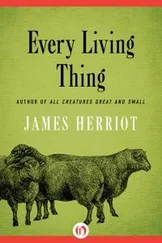And when her youngest older brother, Matthew, began trying to get into her bed when she was nine, she used sleep to keep herself safe.
Matthew was twelve at the time, and Ronnie had suspected for several days that he was planning something for her. So far, most of Matthew’s plans for her had been cruel but tolerable-pinches, hits, endless “Punch buggies, no punch backs.” If she weathered these attacks without comment or reaction, Matthew usually grew bored and found someone or something else to torture. Helen Manning had told Ronnie the story of the Snow Queen, and Ronnie quickly saw the advantage in having a splinter of ice in the heart, as long as you could take it out at will. She thought of herself as the Stone Queen, holding a pose in Freeze Tag. Ronnie had always been good at Freeze Tag.
On an August evening, the year Matthew was twelve and Ronnie was nine, he came into her room when the house was quiet, or as quiet as it ever got, with the living room television blaring into the night, her father’s snores rising and falling. Matthew’s hands were clutched at the groin of his pajamas, as if he had to pee, and he was holding himself so only the tip peeked out. It was the same way he held the baby field mice he sometimes captured in the Mannings’ wild, overgrown backyard. Ronnie could see all this because her eyes were fake-squinched shut, allowing a tiny field of vision through her lashes. She had been lying there, barely breathing, waiting to see what Matthew was going to do when he came for her. She had known, somehow, it would be this night.
“Ronnie,” he whispered hoarsely. “Ronnie, are you awake?”
She let out a sigh, the kind of half-murmur, half-talk sound that her father made when he fell asleep on the sofa after dinner, before moving on to an impressive crescendo of snores. She didn’t dare try fake-snoring because she knew it would come out like a cartoon character, all whistles and lip-flaps.
“I’ve got something I want to show you.” Matthew reached for her wrist, but Ronnie rolled over as if in a restless dream, pinning her arms in a tight V beneath her stomach, hands crossed at her crotch.
“Ronnie, Ronnie. C’mon, Ronnie, it’s a secret, a really cool secret.”
It was all she could do not to say, “It’s not such a secret, dummo.” She knew about sex, if not all its particulars. Her mother had miscarried when Ronnie was four, leading to an early overview of the facts of life. Cable movies and soap operas had filled in the gaps, and Ronnie had a general idea of what went where, what the consequences were, and the odd effect the whole enterprise had on men. She had even seen movies on television that explained why her brother was here, in the middle of the night. These things happened in families, according to the movies, but it was always, always wrong, even when the boy was handsome, which Matthew wasn’t, and really loved the girl, which Matthew didn’t.
But Ronnie would lose a confrontation with Matthew. He would hit her, she would yell, and her father would come in and dispense slaps all around, indifferent to what had caused the noise. The next night, Matthew would come back, the sequence would be repeated, and eventually, he would take what he wanted from her. As for telling her parents what Matthew was trying to do-well, it was too shameful. Ronnie felt she had to protect her mother from the truth about her youngest son-what he did to neighborhood merchants, not to mention cats, how he behaved at school. She had to protect her mother, in general, from the ugliness of life. Her mother didn’t know how awful the world was. Her mother liked to talk about the old shows she had watched on something called Picture for a Sunday Afternoon, back when the world had only three channels. Ronnie didn’t want her mother to know how things had changed, that children were so dirty now, that there were a hundred channels full of things no one should see.
Helen Manning was clearly sophisticated enough, but Ronnie would be even more ashamed to tell a neighbor about Matthew. This was back when Matthew was the bad one, the one headed for trouble and juvenile hall. Funny, he had turned out okay after it became clear that Ronnie was so awful that no one else in the family could ever be known as the bad one. Ronnie never forgot his face the day they came for her, the stunned, almost joyous look of reprieve. He didn’t have to be the bad one anymore.
But this was two years earlier. On her stomach at the age of nine, arms beneath her, hands pressed over her private parts, he was still bad and Ronnie was good, or at least better than him. Smarter, too. She realized she was impenetrable as long as she kept up the pretense of sleeping. Perhaps an older boy, a more vicious one, would have kept going, but Matthew assumed he needed Ronnie’s cooperation. The female body was mysterious to him. He would never find his way inside without a little help.
Matthew shook her by the shoulders, hissed her name in ever more ferocious whispers. He poked her hip with the hard novelty of himself, which really grossed her out, but it didn’t feel much different from a finger, so she continued to sleep. Soon enough, she wasn’t pretending. She drowsed through his whispered come-ons, neither asleep nor awake, until he finally gave up. Later, Ronnie heard that he got a girl in his class to do it, a stupid girl that everyone made fun of, and she was doubly glad she hadn’t let him.
Even at Harkness and later, at Shechter, Ronnie never had trouble sleeping. If they hadn’t kept her to such a strict schedule, she would have slept ten, eleven, twelve hours every night, and taken naps during the day. But excessive sleep was considered a bad sign at Shechter, so she gave it up. It was part of the price of staying there.
Tonight, she had slept a little bit in the old cabin, leaning against the wall. There had been nothing to do but sleep and wait. She knew she would be found. If anything, she had been surprised at how long she ended up waiting in the shack. The sky was still light when she closed her eyes, and it had been a little frightening to wake to such a deep, complete darkness. Most places in Baltimore were louder than Ronnie remembered, but Leakin Park was quieter and darker.
This was not her first visit back to the shack. She had ended up here, almost by accident, soon after she came home. It had seemed so natural, walking along Franklintown Road, tracing the old paths. She had always felt the park was hers, a secret to share with others. Ronnie had discovered the cabin the summer she was ten, and it had been hard to convince Alice to follow her here. Alice was such a scaredycat. But once Alice saw the cabin, she began to take over, making all these silly rules and insisting on her stupid games. “You be the student and I’ll be the teacher.” “You be the daddy and I’ll be the mommy.” “You be the fox and I’ll be the chicken.” “You be the kangaroo and I’ll be the koala bear.” Alice gave herself the best parts, which she said was only fair because she was the one with the ideas.
Ronnie slept. Ronnie dreamed. Her dreams were in black and white, like her mother’s Picture for a Sunday Afternoon. She remembered them the way most people remember their dreams the morning after, in vague fragments. She was surprised, come the end of sleep, how hard it was to make a straightforward story out of what had seemed logical and normal in the night. Helen was often there, and Ronnie’s mother, and now her doctor. Her dreams were neither scary nor soothing. They just were.
Back on Nottingham Road, Alice was awake, as she usually was at 3 A.M. Either she had inherited Helen’s nocturnal tendencies, or she had come to imitate them early on. Even as a child, she had often been awake at 1 A.M., 2 A.M., 3 A.M. The night was full of interesting sounds that got lost in the daytime hours, such as freight trains that rumbled through, miles away.
Читать дальше












